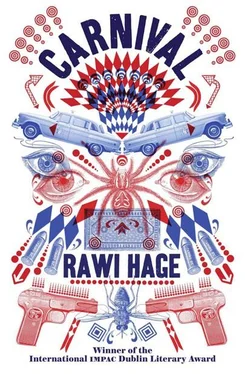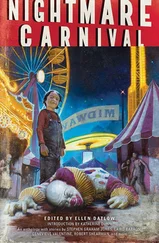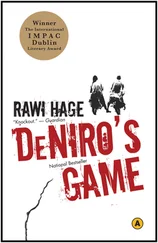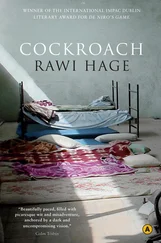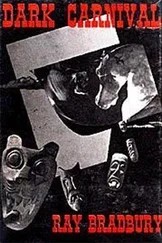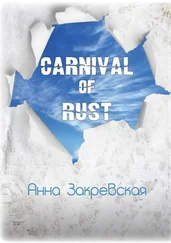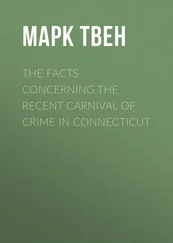“Skippy,” to the officers’ surprise, admitted to all three murders without hesitation, reciting the names and addresses of each of the victims, accurately describing the killings in precise detail, and even mimicking the victims’ reactions. He identified Tammer as his partner. When asked why they had chosen those people, he said that they had followed a list. When asked where they got the list, he said they found it at the house of a man named Otto.
The kid was incapable of lying or of feeling remorse, the police psychologist reported. During his questioning he had asked for a hamburger and a Coke. His statement was punctuated throughout with chuckles and even laughs.
Tammer was interrogated separately.
When the investigators asked him why they had gone to Otto’s house, Tammer said that it was to get some special suitcase for Otto.
Where is the suitcase now?
Under the bridge.
What was in the suitcase?
Papers.
What kind of papers?
Just papers.
What was written on them? the inspector asked.
Names of rich people, Tammer said.
How did you know that they were rich?
Tammer said that Otto had noted down the income of all the people on the list.
When asked if Skippy had looked at the list, Tammer answered, Skippy can’t read.
When questioned about the last time he’d seen Otto, he said Otto had shown up in a clown outfit under the bridge.
When they asked him to list the people he had killed, he named the three men that Skippy had described, and also added a fourth victim, Fredao Mwalila. He said that they’d used Fredao’s gun on the CEO.
Meanwhile, in the other interrogation room, Skippy asked if he could go to the bathroom. His feet were shackled and he was escorted by two officers. In the bathroom, he took off his shirt and started to wash his hair and face over the sink. There were still traces of blood on his undershirt. On the way out he stole the soap. Soap, he mumbled to himself, and smiled.
When Tammer and Skippy were brought together in the same room and asked if they had affiliations to any political group, they said no.
Do you go by any other name? the inspector asked, and Skippy said, The Savage Capitalists, and the boys looked at each other and laughed.
When asked if Otto had ordered the killings, they said no, they’d thought of them on their own.
When asked if they’d killed any taxi drivers, they said no as well.
Who, then, was responsible for the killing of the taxi drivers? an inspector asked.
God knows, Skippy said, and chuckled.
MUD
I STOPPED BY Café Bolero. All the spiders had their newspapers spread out on the tables like a pageant of butterflies in a collector’s attic. They murmured and showed each other the photos of the Killer Kids.
I recognized Tammer and Skippy and I ran across the street and bought as many of the day’s papers as I could carry. I sat at the counter and I read. Their photographs were on the front page of every single newspaper and tabloid. Inside were stories about Skippy’s history inside juvenile detention centres and psychiatric institutions, and articles on the effects of prostitute mothers on kids’ lives. All of it was paraded in the local, national, and even international news. Otto’s picture was in many of the papers too. A prime suspect in the killing of the French journalist, he was mentioned as a foster parent to one of the Killer Kids. The link between the two raised multiple speculations and made for a convoluted story that left many unresolved ends. It was reported that Otto was on the run and was being actively pursued by the police. He was labelled a dangerous ideologue and extreme left terrorist with ties to anarchist organizations.
Once again, experts, this time on the history of anarchism, found their way into the news. The story of the Serbian Gavrilo Princip and his band of anarchists, which, one expert stressed with evident spite and delight, included a mysterious Arab who was later hanged — and their assassination of the Archduke Franz Ferdinand of Austria, consequently triggering the First World War, was trotted out for the public like a history lesson explained to kids in an elementary school class. The life of the famous anarchist Emma Goldman was cited as a lesson in the failure of the movement and its practices of sexual liberation, which, they said, led only to promiscuity and debauchery. Clichés and misconceptions about the movement were revived and repeated. “Anarchist on the Run,” read the photo captions, and “The Resurgence of the Anarchist in the West” and “Why a Good Citizen Was Killed by an Anarchist” and all those words made me go to my car, leave the lantern off, and drive aimlessly.
I drove all evening. I watched the delinquents two surface at night and the partygoers two walk like dancers, impersonating movie stars and mobsters, straightening their collars, pulling down their hats, and reapplying their fading lipstick. I drove ignoring all the creatures who bumped their heads on my glass like blind birds and soundless bats trapped in a world devoid of insects. Then I drove up the mountain and gazed at the streets down below, searching. Futile, I thought: in the chaos of the Carnival, a clown could vanish like a laugh. And then, towards morning, I decided to go back home. I opened the garage door and I parked my car.
I saw the vague shadow of a man standing in the corner. The shadow approached me and I recognized Otto with a quilt over his shoulders. He looked like a defeated bat: his beard had grown, the wrinkles on his face had multiplied and traced deep lines that reached the corners of his eyes. His back was hunched and his face had the look of an old black-and-white photograph that had found its way out of an attic.
I didn’t want to come up, he said. They might be looking for me there.
Are you hungry? I asked.
I’m okay, he said.
I could go and grab something, I said.
No need, we will pick up something on the road.
Where to? I asked.
To Aisha’s, he said.
WE DROVE TOWARDS the limits of the city. Otto rode in the back seat and lay down for fear of being seen. He covered himself with the quilt as I drove through back alleys and into deserted streets. I sailed my boat in the manner of the black and golden ships bringing pharaohs to their burials down the Nile. Once the city was behind us, I stopped at a gas station and I bought water, food, and alcohol.
Otto moved from the back seat to the front. He reached for the bottle of alcohol, opened it, and drank as I drove.
This has to end, he said.
All ends, I said, and then I kept quiet because all was quiet. The roads narrowed and the trees swayed in the silence of dawn. A few cars passed us but no one seemed to be going anywhere. All was still except for the road that curved and passed and disappeared underneath our wheels. Trees appeared suddenly at the edge of the road; they grew in front of our eyes only to pass and shrink again in the frame of the rearview mirror. Otto opened the window and froze his face against the cold wind. Fresh air, he said. Fresh wind for the rodents and the cavemen, he said, raising his voice through the whistle of the open window. Then, to make a fire, he closed the window, lit a cigarette, opened the window again, and blew into the rushing air.
The ground is wet, Otto said. Look how all has turned grey. How I hate that pale colour. The colour of evenness and submission, the colour of dormitories and hospitals and jails. For the funeral of my father, my mother bought us grey suits. She said, Kids shouldn’t wear black. Kids should be in grey, and then one day she left us. I can’t even remember where she’s buried. Do you remember where your mother is buried, Fly?
Beside a river, I said. Somewhere between the Danube and the Italian heel. There was a band playing, and everyone wore bright colours.
Читать дальше
